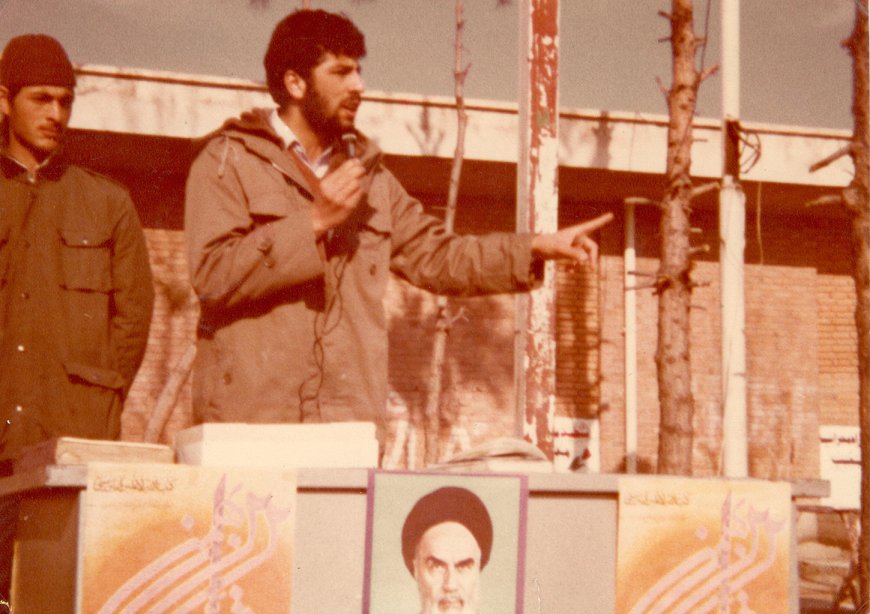If Raeisi Hadn't Been There, US-Backed Terrorists Would Have Butchered Tehran's Citizens in the 80s
A photograph depicting Masoud Rajavi, former leader of the Mojahedin-e Khalq Organization (MKO), alongside former Iraqi dictator Saddam Hussein, serves as a stark reminder of the violent history of the MKO and the role of Ayatollah Raeisi in combating their terrorism in the 1980s.

A photograph depicting Masoud Rajavi, former leader of the Mojahedin-e Khalq Organization (MKO), alongside former Iraqi dictator Saddam Hussein, serves as a stark reminder of the violent history of the MKO and the role of Ayatollah Raeisi in combating their terrorism in the 1980s.
official Websites report that the recent joy expressed by terrorist groups over the martyrdom of Ayatollah Raeisi and his companions stems largely from Raeisi’s pivotal role in punishing the notorious MKO terrorists during that turbulent decade. The tragic helicopter crash that claimed the lives of Raeisi and several officials has plunged the Iranian nation into mourning, while enemies of Iran celebrate the loss.
Ayatollah Raeisi was instrumental as a judicial authority in Tehran during the 1980s, confronting and punishing MKO terrorists, known as hypocrites, who were responsible for numerous atrocities. His actions have made him a target for criticism from Iran's adversaries and remnants of the terrorist group, who have consistently launched attacks against him over the years.
#### The MKO's Terror Campaign
The Mojahedin-e Khalq Organization (MKO), active in Iran before the revolution, is infamous for its history of sabotage, terrorism, and armed conflict. After the Islamic Revolution, the Iranian populace rejected the MKO's extremist ideology, prompting the organization to attempt to seize power through armed struggle.
Led by Masoud Rajavi, the MKO orchestrated several phases to destabilize the Islamic Republic. The initial phase, dubbed "making the system futureless," involved the assassination of Iranian officials to disrupt the country's stability. This phase began on June 19, 1981, and included the bombing of the Islamic Republic Party headquarters, which resulted in the deaths of Shahid Beheshti and over 70 officials—an attack Rajavi described as a "fatal blow."
Subsequent MKO actions included failed attempts to bomb Imam Khomeini's residence and office, and successful attacks on President Rajaei and Prime Minister Bahonar, who were killed by a powerful bomb. The MKO's campaign also targeted religious figures, assassinating five Friday prayer leaders.
The MKO's analysis, heavily influenced by their close ties with the United States, was to escalate their efforts by causing widespread insecurity and crisis in Iran. Under Rajavi's orders, MKO members terrorized and murdered innocent civilians, including a three-year-old girl named Leila Nourbakhsh.
#### Collaboration with Saddam Hussein
During the Iran-Iraq War, the MKO collaborated with Saddam Hussein’s Baath regime, conducting espionage and intelligence operations against Iran. The organization earned the title of the "fifth column" of Saddam’s regime and participated in direct combat operations such as Operation "Sun" and Operation "Mersad," resulting in numerous Iranian casualties and atrocities, including burning people alive and attacking hospitals.
The MKO also played a role in the massacre of Iranian pilgrims in Mecca in 1987. Amid these hostilities, Ayatollah Raeisi emerged as a key judicial figure defending the Iranian people against these threats.
#### Raeisi's Legacy and Western Media
Ayatollah Raeisi's decisive actions against the MKO terrorists during his tenure in judicial institutions were crucial in preventing further bloodshed in Tehran. Despite his efforts to protect the Iranian populace, Western media and political entities have often sought to tarnish his reputation. This ongoing campaign raises questions about the motivations and benefits derived by the West from distorting historical facts and vilifying Raeisi.
The photograph of Maryam Rajavi, current MKO leader, alongside Rudy Giuliani, a close associate of former US President Donald Trump, underscores the complex and often controversial international alliances that continue to shape the narrative around Raeisi and Iran's historical struggles with terrorism.













































